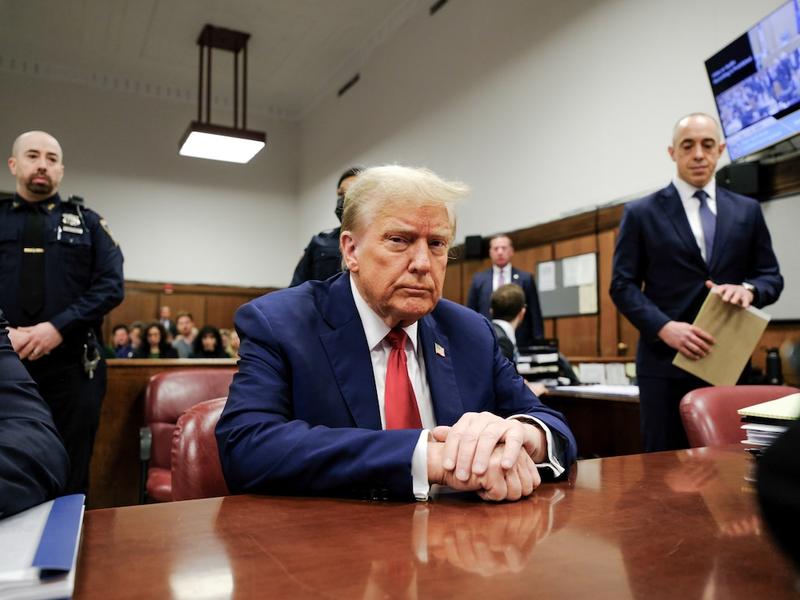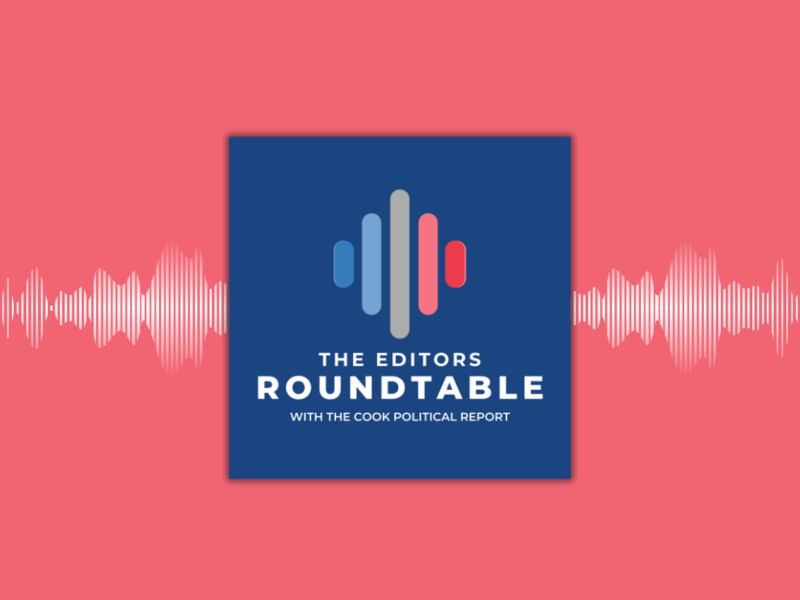
A good friend of mine who is an American foreign policy expert recently returned from a trip to Asia, where he met with a wide variety of current and former senior government officials from across the region. The consensus view among these leaders was that President Trump will win reelection, that polls are unreliable, that Trump’s “nativism is more popular than American elites appreciate.”
He said they see Trump as “part of the global trend toward populism and anti-immigration—a ‘unified field theory’ of anti-elite politics that favors dictatorship and strong men.” He continued in an email saying that “most are withholding judgment on whether this is a permanent trend in US polity or just the unique effect of Trump’s disruption. Their base case is that incumbents win, and Trump surprised once and a strong US economy is likely to favor him again.”
They’re not alone. The expectation of a Trump reelection is also reflected in a CNN national poll in May showing 54 percent of Americans expected him to win (41 percent thought he would not), as well as a Cornerstone Macro poll of institutional investors in May, which found 57 percent agreed.
This is all despite a large and growing body of evidence to the contrary. Jimmy Carter is the only elected incumbent in the post-World War II era with Gallup job-approval ratings lower than Trump’s are today. Indeed, the president’s approval ratings have been below Carter’s for the vast majority of his two-plus years in office.
The new NBC News/Wall Street Journal poll conducted July 7-9 among 800 registered voters showed Trump with an overall 45 percent approval rating (32 percent strongly approved, 13 percent somewhat approved) and 52 percent disapproval (10 percent somewhat disapproved, 42 percent strongly disapproved), with a ratio of 1.3 strong disapproves for every strong approve.
His overall approval rating was identical to that in the June 9-12 Fox News poll and the disapproval was a point less, including 1.4 strong disapproves for every strong approve. The June 28-July 1 ABC News/Washington Post poll was similar, as 47 percent of registered voters approved and 50 percent disapproved (all adults was 44 percent approval, 53 percent disapproval).
The NBC/WSJ poll showed former Vice President Joe Biden leading Trump by 9 points (51 to 42 percent), outside of the poll’s margin of error; Sen. Bernie Sanders ahead by 7 points (50 to 43 percent); Sen. Elizabeth Warren up by 5 points (48 to 43 percent); and Sen. Kamala Harris up 1 (45 to 44 percent). The Fox poll had Biden up by 10 points, Sanders up 9, Warren up 2, and Harris up 1.
While Warren and Harris may or may not be weaker rivals to Trump than Biden or Sanders, they are both much less well-known and thus might be expected to run a bit behind better-known Democrats. Among registered voters, the ABC/Washington Post Poll had Biden leading Trump by 10 points, Sanders up 1 point, and Harris up 2, while Warren and South Bend Mayor Pete Buttigieg were even.
What some of these foreign leaders might miss in their assessment of the 2020 general election is 2016’s peculiarity, the role Hillary Clinton’s polarizing profile played, the level of ambivalence that Democratic voters had once it appeared that the election was effectively over—after the Billy Bush/Access Hollywood tape—and how that affected turnout. Since the 2016 election, the level of intensity among Democrats has been off the charts.
Witness the ABC/Washington Post Poll finding that while 52 percent of Trump supporters felt it was “extremely important” that he win a second term, 73 percent of current Democratic supporters felt it was extremely important that Trump does not win a second term—a 21-point difference.
This not at all to suggest that Trump cannot be reelected. Indeed, I can think of numerous scenarios in which he might. If the 2020 election is effectively a referendum on democratic socialism rather than on Trump, that would be a start.
In her Wall Street Journal column last week, Peggy Noonan called Rep. Alexandria Ocasio-Cortez a “one woman Committee to Re-elect the President,” an allusion to the official name of the 1972 Nixon campaign committee. Maureen Dowd’s equally barbed column in Sunday’s New York Times quoted Rahm Emanuel saying that Ocasio-Cortez’s “squad” hadn’t decided if their goal is unseat Trump or purify the party.
“If A.O.C. and her Pygmalions and acolytes decide that burning down the House is more important than deposing Trump,” Dowd wrote, “they will be left with a racist backward president and the emotional satisfaction of their own purity.”
My friend explained in an email that his impression from talking with Asian leaders was that “Beijing is seizing the moment to explain, presented more in sorrow than anger, that America’s decline has gone from chronic to acute under Trump.” He noted that “the US is increasingly critical of allies and is monetizing relationships previously built on shared interests. China (which does not rely on alliance structures) lives in the region, is patient, and will outlast ‘fads’ in American policy. It can be depended upon and it is not going away.”
Whether you agree or disagree, this is an interesting perspective to consider.
This story was originally published on nationaljournal.com on July 16, 2019









Subscribe Today
Our subscribers have first access to individual race pages for each House, Senate and Governors race, which will include race ratings (each race is rated on a seven-point scale) and a narrative analysis pertaining to that race.